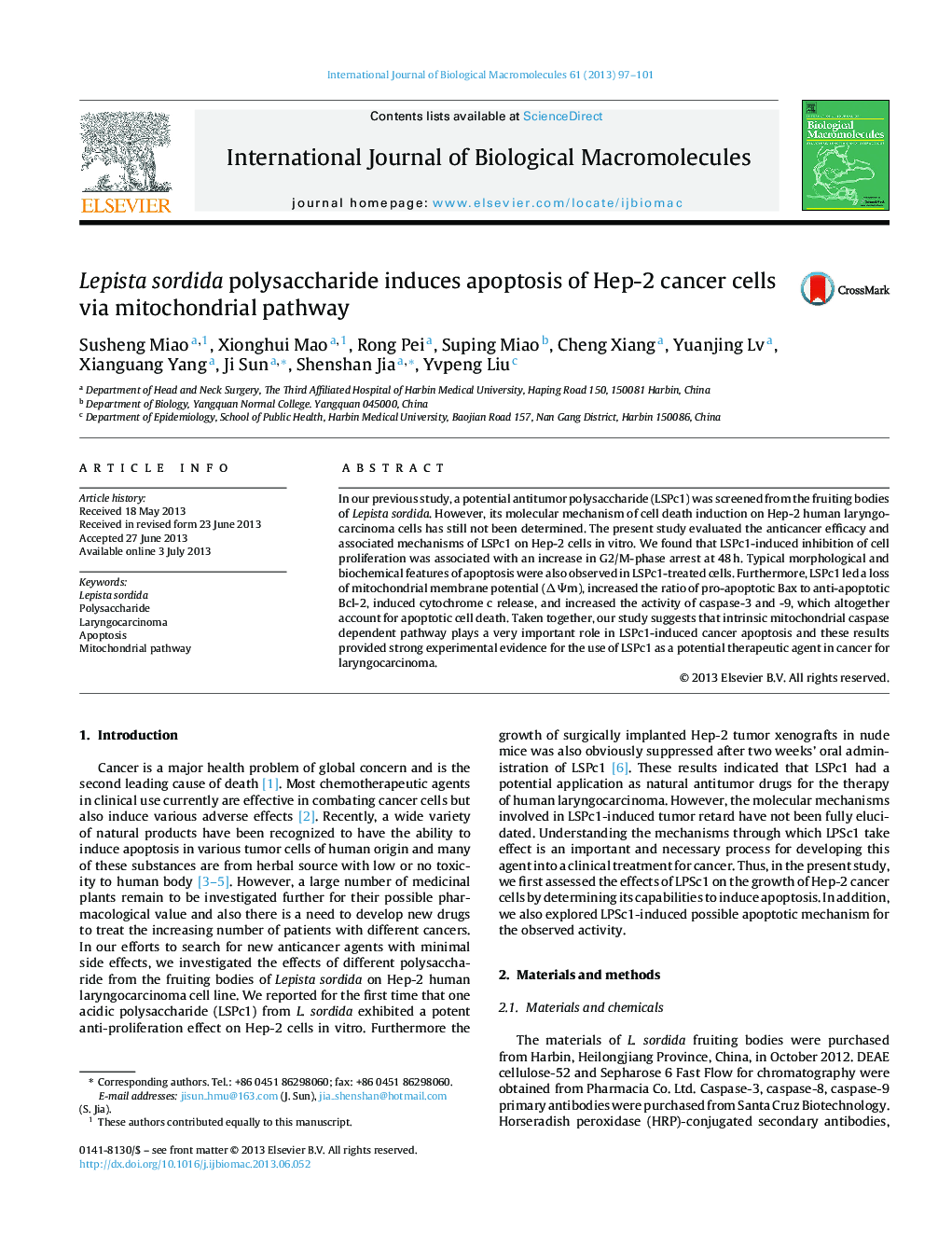| Article ID | Journal | Published Year | Pages | File Type |
|---|---|---|---|---|
| 1986756 | International Journal of Biological Macromolecules | 2013 | 5 Pages |
In our previous study, a potential antitumor polysaccharide (LSPc1) was screened from the fruiting bodies of Lepista sordida. However, its molecular mechanism of cell death induction on Hep-2 human laryngocarcinoma cells has still not been determined. The present study evaluated the anticancer efficacy and associated mechanisms of LSPc1 on Hep-2 cells in vitro. We found that LSPc1-induced inhibition of cell proliferation was associated with an increase in G2/M-phase arrest at 48 h. Typical morphological and biochemical features of apoptosis were also observed in LSPc1-treated cells. Furthermore, LSPc1 led a loss of mitochondrial membrane potential (ΔΨm), increased the ratio of pro-apoptotic Bax to anti-apoptotic Bcl-2, induced cytochrome c release, and increased the activity of caspase-3 and -9, which altogether account for apoptotic cell death. Taken together, our study suggests that intrinsic mitochondrial caspase dependent pathway plays a very important role in LSPc1-induced cancer apoptosis and these results provided strong experimental evidence for the use of LSPc1 as a potential therapeutic agent in cancer for laryngocarcinoma.
